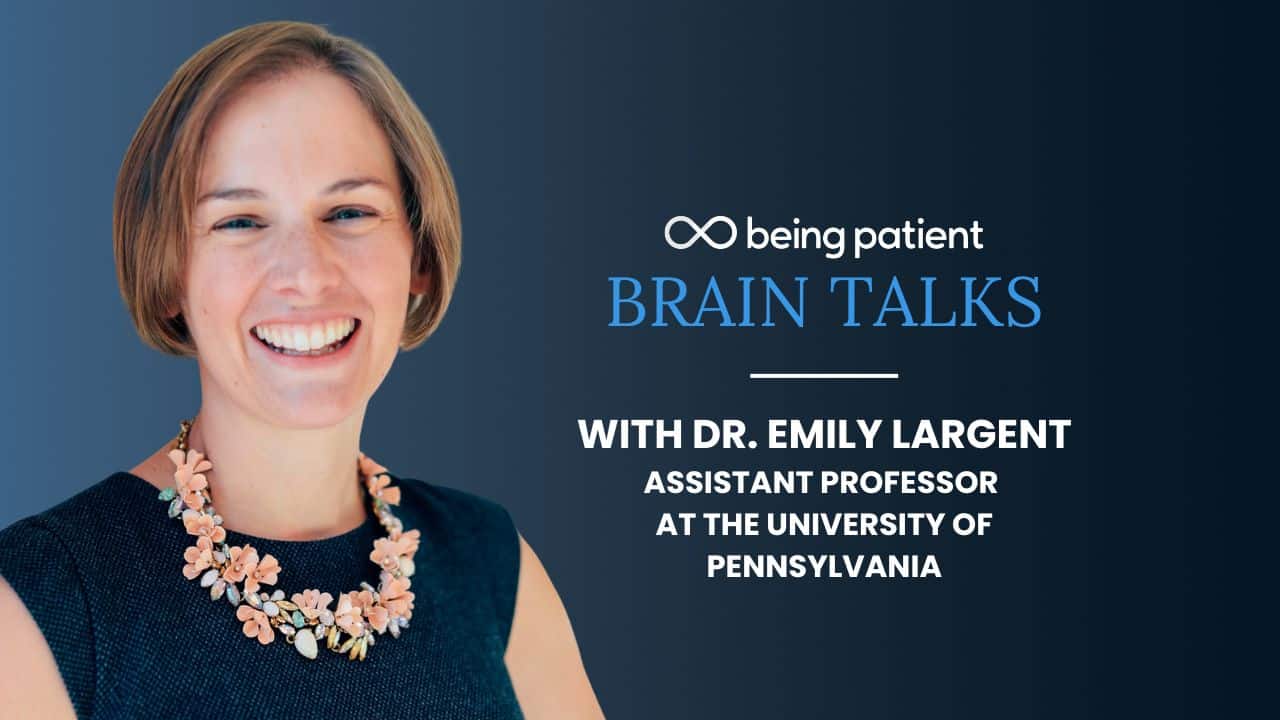
- This event has passed.
Dr. Emily Largent: How Do We Make Clinical Trials Better for Participants?
March 1, 2023 – 10:00 am – 10:30 am PST

This event has passed. You can read highlights from the interview and watch the YouTube recording of the talk here.
On Wednesday, March 1st, at 10:00 a.m. PT/1:00 p.m. ET, Dr. Emily Largent joins Being Patient Live Talks to discuss her research on how to better treat participants in clinical trials for Alzheimer’s.
Largent is the Emanuel and Robert Hart Assistant Professor of Medical Ethics and Health Policy at Perelman School of Medicine at the University of Pennsylvania. Her work examines the ethical and regulatory aspects of working with human subjects in medical trials. With a particular focus on neurodegenerative diseases like Alzheimer’s, she focuses on the social, legal, and ethical aspects scientists should consider when research findings are applied to care. In Largent’s recent study, she examines some of the key reasons Alzheimer’s clinical trials can end early and some key approaches to improve the trial experience for participants.
Tune in Wednesday on Being Patient’s Facebook page to get more insights on this research and how more trials could put participants with Alzheimer’s first.
Who's coming?
33 people are attending Dr. Emily Largent: How Do We Make Clinical Trials Better for Participants?
I have been refused clinical trials because my MMSE and MoCA s are too high. The maker of the product being tested will not make enough money on my results.
Please comment on eligibility.
Through a SPECT scan I was diagnosed FTD and abnormal perfusion to basal ganglia and frontal temporal obe. I am confused.
Thanks for this comment, Bob! We’ll be sure to ask questions on approvals for clinical trials like this in the Live Talk.
My sister workeed as an airline stewardess for 30 yrs .out of her crew of 6 ,3 of them have been diagnosed with Alizemers. She feels that working tp to their long hrs in low oxygen levels may have contributed to their impairment?
Thanks for recieving this comment
Do PET scans help with choice of medications? What are the properties of different medications that are used for treatment?
My mother have Alzheimer’s she can’t also speak can be any treatment possible please suggest me 🙏🙏🙏